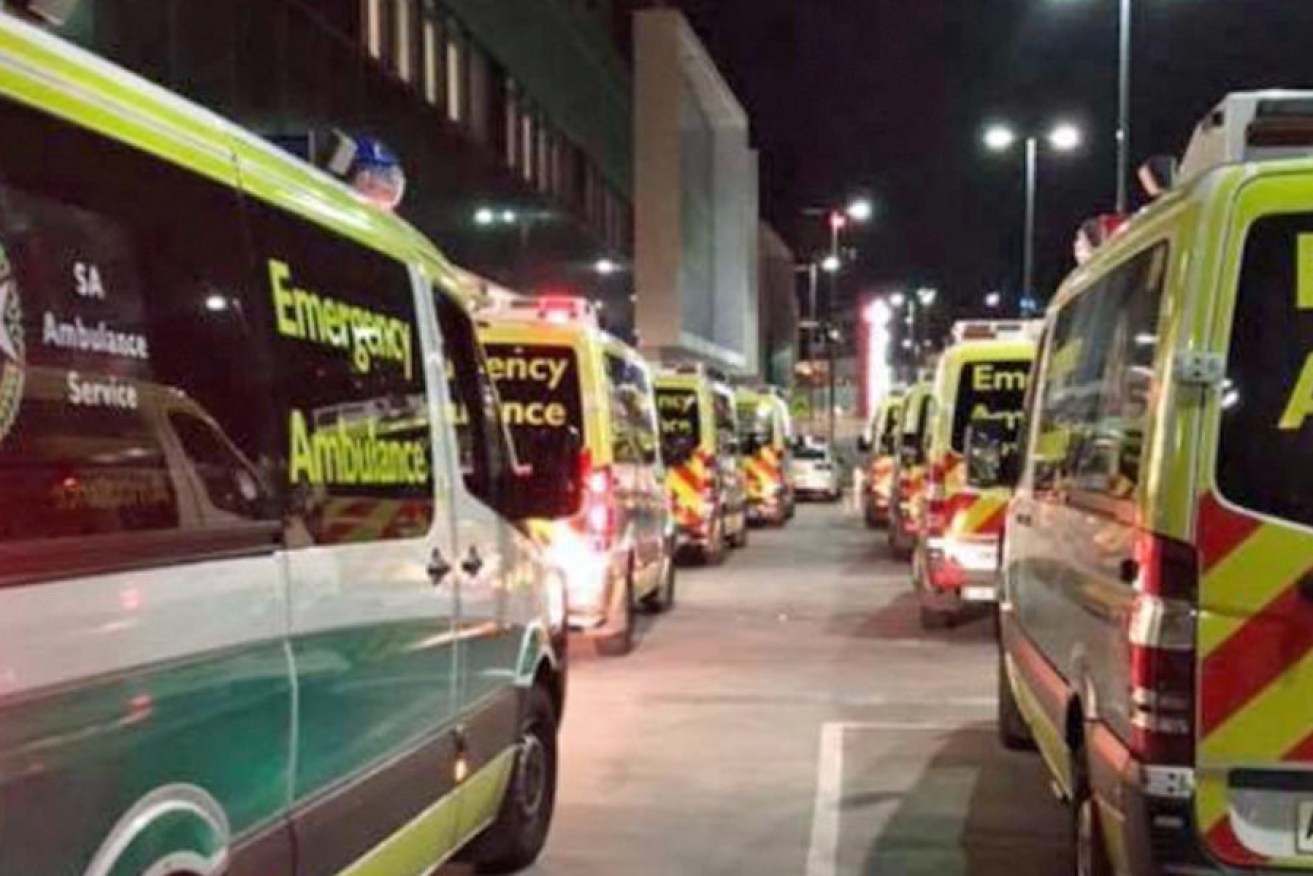Ambos and Govt strike deal to end industrial dispute
A bitter industrial dispute between paramedics and the State Government is over, with the union agreeing in principle to the latest offer which will see an extra 74 paramedics trained and employed and some roster reforms.


Photo: supplied
The deal will now go to the union’s 1600 members to be voted on.
Treasurer Rob Lucas said the 74 extra paramedics would include 24 allocated to country stations and the union had now agreed to cease all industrial action.
Lucas committed to employing “even more” ambulance officers once all enterprise bargaining negotiations had been finalised.
Ambulance Employees Association state secretary Phil Palmer told InDaily paramedics would be able to keep their 12-hour shifts – a key sticking point in the dispute – but that the union had agreed to some roster reforms, including the possibility of a new 10.5-hour shift.
The government had wanted more paramedics to move to 8 and 10-hour shifts.
Lucas said the new deal clearly stated “shifting the balance towards an increased reliance on other existing shorter shift arrangements”.
He said the union and government had agreed to further discussions on meal-break reform.
The government had wanted paramedics to take their breaks at the closest ambulance station but the union wanted staff to be able to continue going to their home base.
Lucas said the deal would not solve the state’s ambulance ramping problem, but would provide some relief, with more work needed to reduce pressure on overcrowded hospital emergency departments.
The union and government have been at loggerheads for years and today’s result comes after months of mediation in the SA Employment Tribunal.
In a bulletin sent to members this morning, Palmer said the union and government had signed a “deed”, subject to ratification by members.
“Your Executive believes that this document is the first of several steps in resolving the critical resourcing shortfalls facing the ambulance service and the subsequent risk to public safety,” the notice says.
“Your State Council were briefed on the proposed document on Friday last week, and unanimously indicated their in-principal support.”
Palmer told members the deal was “mostly our words and our propositions”.
“We had to endure a series of ridiculous proposals from a pig- headed government who just could not get how wrong they were,” he stated.
“Members will note that there are no strings attached despite the ‘best efforts’ of three wise monkeys (Marshall, Lucas and Wade) and their willing hench-persons.”
Palmer told members the union had not committed to “wholesale roster reform” of all rosters and had only committed to roster reform for “additional roster models”.
“Members currently working 12-hour rosters are not affected by this commitment,” he stated.
Lucas welcomed the “significant progress” made in the employment tribunal and said both sides had compromised.
“We recognise the enormous contribution our hardworking ambos make in our community and this offer will help ensure they can deliver the best possible service to South Australians while reducing fatigue and improving work-life balance,” he said.
“The Government has always maintained its commitment to compromise, offering more ambulance officers and paramedics conditional upon the union committing to important roster and meal break reforms and the end of industrial action – which they will now recommend to their members.
“We know that more staff alone is not going to deliver the safest and highest quality ambulance service and help solve the issue of ramping, which is why we need these sensible industrial reforms in addition to the significant investment we are making in our emergency departments.
“Roster reform is critical because it will help reduce the number of long, tiring 12-hour shifts with a greater number of shorter 8-hour, 10-hour and the introduction of 10.5 hour shifts and staggering start and finish times.
“The union has agreed to the new roster reform models being completed by 30 June, 2021.”
The union has been vocal in raising significant problems in the ambulance service, including the ongoing ramping crisis.
Yesterday the union revealed details of two children in emergencies kept waiting for ambulances, as Adelaide hospitals struggled with overcrowding and ramping.
The union said a 10-year-old child in a “life-threatening” emergency was forced to wait 23 minutes for an ambulance to arrive on Sunday, while on Monday an 11-year-old “with an uncontrolled haemorrhage” – waited 34 minutes.
The Health Minister yesterday told Parliament he was unaware of the case involving the 11-year-old and he defended the wait for the 10-year-old, saying a solo first responder paramedic helped the child before the ambulance arrived.
In the midst of the industrial dispute, Lucas said roster reform was important to replace “long, tiring” 12-hour shifts and that data showed nearly a quarter of ambulance crews were travelling greater than 45 minutes to get to their home station for a meal break.
But the union said most members wanted to retain their 12-hour shifts and that having a meal break at their home base was important not only for morale for people doing a difficult job, but to ensure the local area was adequately-covered for future jobs.




